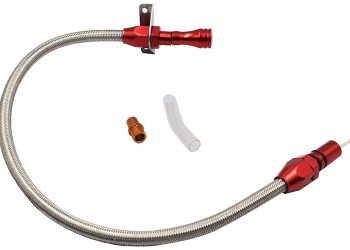Shopping for an auto insurance policy can feel confusing, tedious, and stressful. Before you even begin researching options and requesting quotes, it may help to review the auto insurance industry terminology. With these terms clarified, you’ll be all set to start your search for the best car insurance policy for your needs.
General Insurance Terms
Terms such as “claim,” “premium,” “deducible,” and “depreciation” have special meanings in the context of insurance policies. Before getting into auto-insurance specific terms, review the jargon of the insurance industry at large:
- Exposure Unit– The thing(s) that the insurance policy covers, for example, a vehicle.
- Insurance Rate– Put simply, your insurance rate is the amount you must pay to receive insurance coverage, typically charged each month. Insurance companies multiple this rate by the units of exposure coverage to determine premiums.
- Premium– The total amount (for each installment) a policyholder must pay to the insurance company for coverage.
- Deductible– A set price policyholders must pay themselves before their insurance coverage kicks in. You should consider insurance premiums and deductibles together when looking for an insurance policy.
- Policy Period– The period of time covered by the insurance policy. Once the timeframe passes, you can renew the policy.
- Extended Coverage– Optional supplemental coverage added to an insurance policy.
- Claim– The official request by a policyholder to the insurance company claiming insurance compensation for damages.
- Cred-Based Insurance Score– The rating an insurance company gives a policyholder based on their credit history.
Auto Insurance Terms
The following terms only apply to auto insurance or have designated meanings within the car insurance industry:
- Actual Cash Value– A monetary amount representing the replacement cost of an insured vehicle minus the vehicle’s depreciation value before the damage.
- Depreciation– The loss in value over time and use of a vehicle.
- Financial Responsibility Law– A state-specific law that requires vehicle owners to prove they are capable of paying for damages caused by accidents.
- Motor Vehicle Report– Driver history records a prospective policyholder must submit to an insurance company if they have a driver’s license and previously owned or driven a vehicle.
- No-Fault Auto Insurance– A type of vehicle insurance that covers a policyholder’s medical expenses after an accident regardless of who is at fault.
- Monetary Threshold– The maximum amount an insurance policy will pay is coverage for no-fault auto insurance policies.
Forms of Car Insurance Coverage
Auto insurance policies are made up of numerous forms of coverage that are individually priced. Types of car insurance include:
- Bodily Injury Liability– Almost every state in the U.S. requires bodily injury liability coverage, also known as PIP. This coverage pays for the medical expenses of the other party involved in an accident with the policyholder.
- Personal Injury Protection– This form of auto insurance covers the policyholder’s medical expenses that result from an accident.
- Property Damage Liability– Insurance for the damage caused to the vehicle of the other party involved in an accident with the policyholder. Most states require this coverage.
- Collision– Just like PIP, this form of auto insurance pays for the vehicle damage caused to the policy holder’s vehicle resulting from an accident.
- Comprehensive– This form of insurance coverage applies to damage caused to a policyholder’s vehicle that did not result from a collision. For example, comprehensive insurance covers losses caused by weather or vandalism.
- Uninsured and Underinsured Motorist– Should a policyholder get into an accident with an uninsured or underinsured driver, this form of insurance covers the policyholder’s expenses. In some states, this form of insurance covers hit-and-run accidents.
- Gap Auto Insurance Coverage– Gap auto insurance coverage is entirely optional. It helps policyholders pay off their car loan if the car is totaled or stolen or if the remaining loan balance exceeds the depreciated value of the vehicle.
Making an Informed Decision
Knowing the car insurance industry terminology should help you make an informed decision when considering different policy options. When policy shopping, keep in mind that not all forms of coverage are required by law and may not be necessary considering your needs and circumstances.














